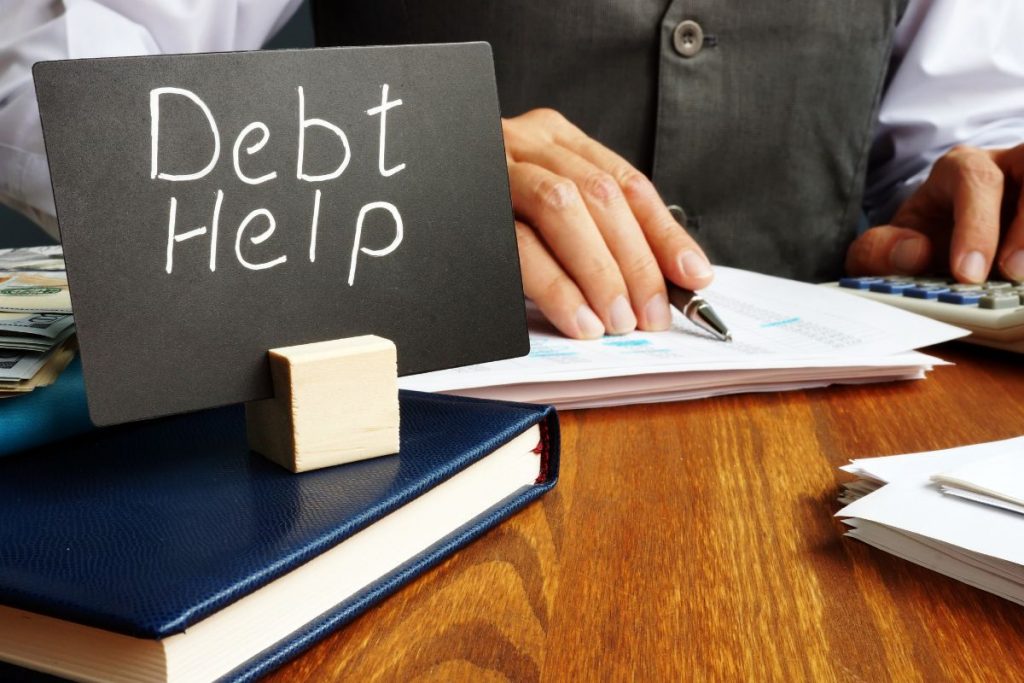Dealing with debt is difficult enough without feeling like you’re completely alone in the process with nowhere to turn. This leads many Americans to struggle on their own with trying to deal with their debts.
In fact, a 2019 survey found that almost half of borrowers in America (47 percent) feel uncomfortable talking about their credit card debt with anyone. Furthermore, three out of 10 respondents even felt uncomfortable talking about debt with their close family members. This just goes to show how common it is for people to feel like they must keep their debts to themselves and figure out a solution on their own.
Reaching out for help with debts, though intimidating at first, can help connect you with important information and resources you can use to make informed decisions about tackling your debts. Maybe you’re not ready to talk about debt openly with your family and friends yet, but there are still some debt solutions worth exploring that involve working through them with professionals.
Here’s more on some ways to connect with debt relief help.
Credit Counseling
Setting up an appointment with a credit counselor at a not-for-profit agency is a great first step because this initial consultation should be free — making it low risk, high reward.
What happens during a credit counseling session? Well, these appointments can take place over the phone, over remote video or in person depending on your preferences. According to the National Foundation for Credit Counseling (NFCC), you will start by sharing your financial information with the counselor. The two of you will go over your budget, debts and goals in detail. You should leave the meeting with a realistic plan to work down your debts that has been personalized to your circumstances.
Debt Management
After your credit counseling session your counselor may suggest a debt management plan (DMP) as a potential next step, which would mean working further with that counselor and the agency to repay your debts over the course of three to five years.
Instead of paying creditors directly, though, you’d start making one lump monthly payment to the agency and allow it to distribute those funds to creditors. A potential advantage of participating in a DMP is that creditors may lower your interest rates or cancel your fees as long as you adhere to the rules of the program for as long as it takes to pay off those debts.
Be aware that taking part in a DMP is a multi-year commitment and will also require fees — potentially in the form of start-up fees and monthly fees, although agencies structure their costs differently. Be sure to read the terms and conditions before signing up so you know exactly what you’re agreeing upon.
Debt Settlement
Debt settlement, also known as debt relief, is a collaborative solution meant for borrowers who have experienced at least one financial hardship that has caused them to fall behind on their payments.
Throughout debt settlement, it is your responsibility to make monthly deposits to save up a percentage of each of your balances, which the program’s negotiators will then use to try to strike a deal with your creditors. When successful, settlement can shave off a significant percentage of a balance, making it easier to pay. For each balance settled, you will pay a fee to the company for their part.
The first step before enrolling in debt relief services is undergoing a free consultation to make sure you are a good fit and that you understand how the program works. This is the time to ask questions so you’re not blindsided later.
Debt relief help is out there, but it requires being willing to take that first step of talking about your debt, asking questions and educating yourself on the options available.




More Stories
Choosing Between Russian and Greek Tortoises: Which is Right for You?
Choosing the Best Tools for Flawless Nail Art
Get Real Results: Buy Instagram Likes and Followers from InsFollowPro.com